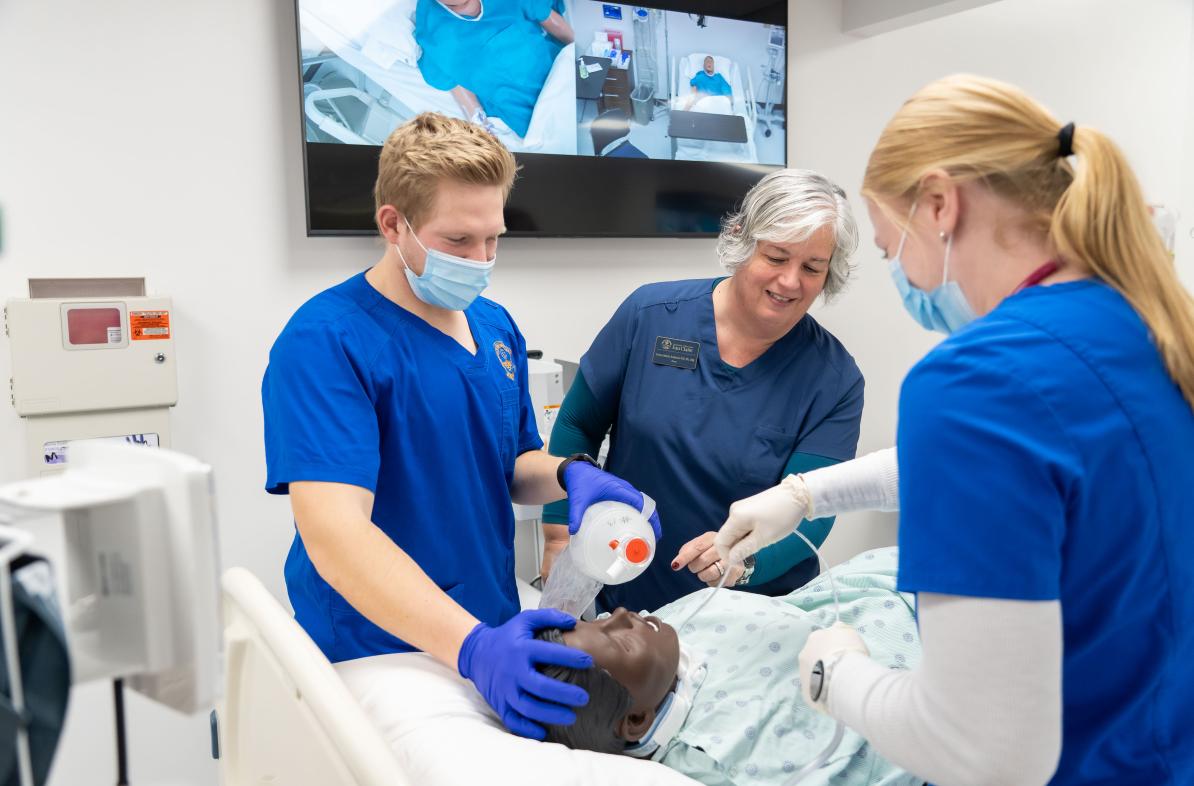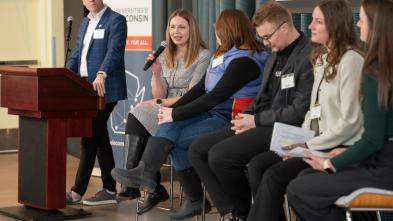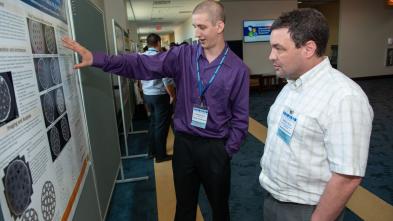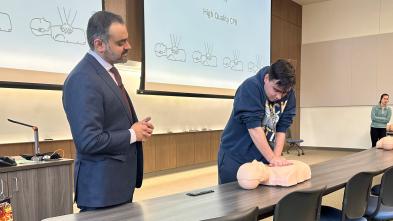The purpose of the grant was to encourage talent development and nurture a workforce in the critical areas of health, education and economic development throughout northwestern Wisconsin.
UW-Eau Claire, along with Mayo Clinic Health System – Northwest Wisconsin, developed four pillars designed to improve the health and economic vitality of rural communities.
Pillar one addressed workforce shortages, specifically in nursing, education and social work. Pillar two focused on developing new majors and programs to provide upskilling opportunities for healthcare careers. Pillar three looked at ways to innovate rural health care delivery, and pillar four was designed to support innovation and entrepreneurship, especially for rural small businesses.
Achieving the goals set forth in those four pillars meant it was going to take a collaborative effort across the university, and that’s exactly what happened, according to Dr. Carmen Manning, dean of the College of Health and Human Sciences.
“It’s really great to look around this room and see there are people from across the entire university,” Manning told those gathered at the reception. “It is a huge testament to the nature of this work and tells us the ways in which we can move forward together and do pretty amazing things.”
Key accomplishments through the grant
Throughout the course of the Workforce Innovation Grant, UW-Eau Claire has launched the following new academic programs:
- Master of public health.
- Master of science in exercise physiology.
- Psychiatric mental health nurse practitioner track program.
- MBA in healthcare management.
- Bachelor of sciences in professional studies.
- Speech-language pathology assistant certificate.
- Special education transition to teaching pathway.
- Navigating Health Systems certificate.
The following existing academic programs were updated and/or expanded throughout the course of the Workforce Innovation Grant:
- Updated the master of science in nursing – nurse educator program from in-person to hybrid format.
- Increased traditional bachelor of science in nursing by 60%.
- Program expanded with an increase in the number of students admitted by 60%, which translated to 48 additional students per year.
- Invested in the College of Nursing’s Clinical Learning Center with physical space remodeling, installation of an immersive reality simulation lab and purchase of the latest simulation technology, including high- and low-fidelity mannikins.
In an effort to expose students to rural communities during their education journey:
- Over $1.6 million in scholarships were provided to student teachers and social work interns who completed their placement in rural areas, totaling more than 600 students supported in rural locations.
- Five rural micro-immersion trips completed by 150-plus UW-Eau Claire students in rural school districts.
The Workforce Innovation Grant has allowed us to expand the efforts of the university’s Small Business Development Center, including:
- Student employment opportunities for 20-plus students as “student consultants,” serving over 1,100 different small businesses throughout the state.
- Service to clients in 59 of Wisconsin’s 72 counties.
- Eight different small business clinics on location within rural areas to support local business owners.
- Recognition for the SBDC’s efforts to provide equitable access to capital for Wisconsin entrepreneurs, including:
- 2023 Wisconsin Top Rural Development Initiative – Rural Small Business Clinics.
- 2023 Wisconsin Economic Development Association’s Economic Development Award: SBDC’s Capital Access Clinic.
- 2025 Wisconsin Top Rural Development Initiative – SBDC Capital Access Clinic.
Collaboration on the Workforce Innovation Grant with Mayo Clinic Health System:
- Expansion of the bachelor of science in nursing by 60% through the implementation of dedicated education units. The innovative DEU model allowed for consistent increases in clinical capacity in smaller hospitals where accommodating large numbers of students had been a challenge.
- Creation of the preventative health specialist role, an integrated model, combining the function of a community health worker, health educator, scheduler and care coordinator, aimed to enhance rural healthcare capacity by upskilling staff, building community partnerships and adapting digital tools to address patient needs. The role is supported by the Navigating Health Systems certificate at UW-Eau Claire to ensure a long-term pathway of trained patient-centered health professionals.
- Development of a resilient entrepreneurial ecosystem in rural northwest Wisconsin by bridging academia, healthcare and community stakeholders. Through workshops, hackathons, pitch competitions and clinician engagement, innovation in healthcare and business is promoted to address post-COVID challenges.



